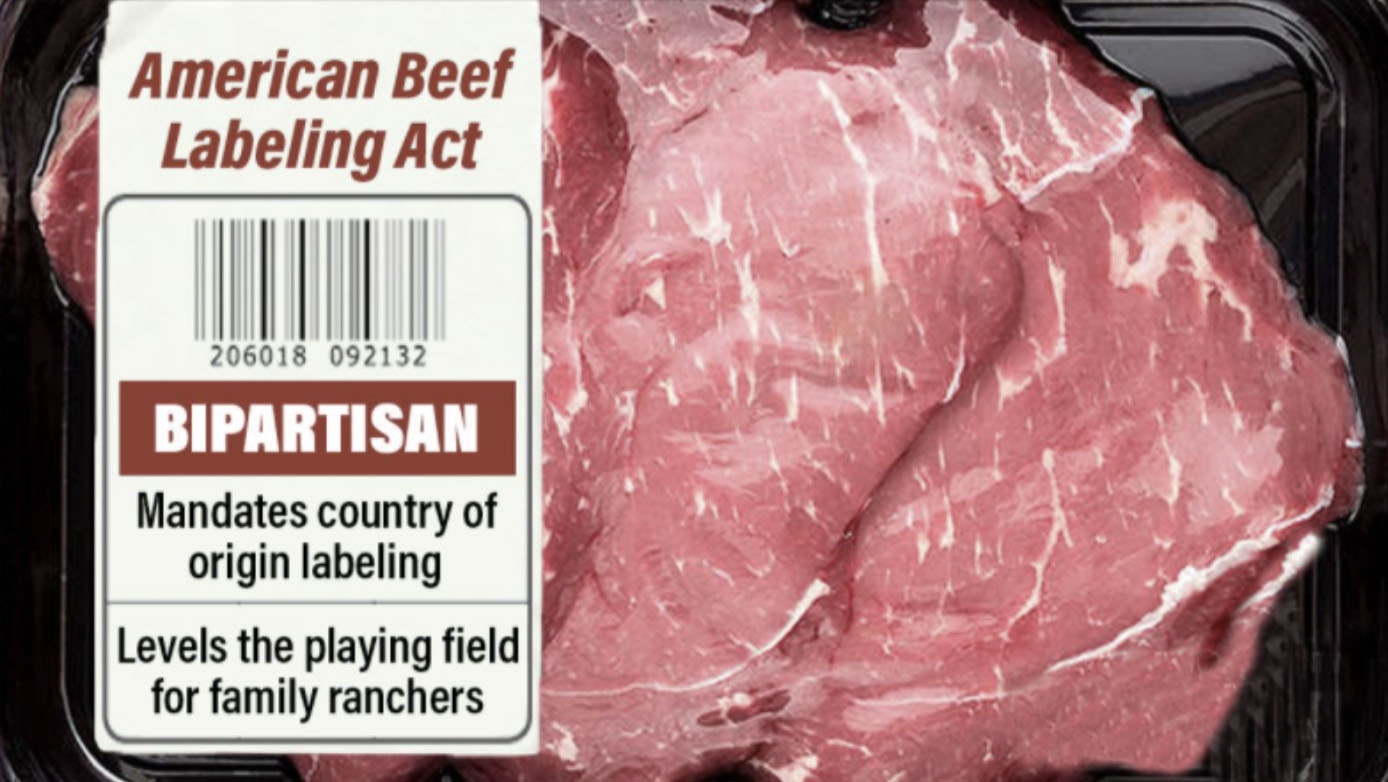Industry infighting is hampering efforts to develop a country-of-origin labeling program for meat products, according to a state senator who said he will back any legislation that will put the labels in place.
Two bills have been proposed in Congress in recent months regarding the proper labeling of beef raised in the United States and Sen. Ogden Driskill, R-Devils Tower, told Cowboy State Daily on Thursday that either would be beneficial for anyone who consumes meat in the United States.
“U.S. beef deserves to have its own label,” he said. “But the meat industry has been manhandled by these large packers.”
Driskill explained that large meat packers see as a hinderance any requirement to properly label beef as a “product of the USA” and are unwilling to take on the time or costs to do so.
U.S. Sen. John Tester, D-Montana, recently introduced the “American Beef Labeling Act,” which he said ensures that only American beef will be labeled as being produced in the U.S.
In August, Sen. Mike Rounds, R-South Dakota, proposed the “USA Beef Act,” which limits the use of a “Product of the USA” label to beef that is born, raised and slaughtered in the United States. Currently, beef raised in other countries and slaughtered in the U.S. can use the label.
Wyoming Livestock Roundup publisher Dennis Sun told Cowboy State Daily on Wednesday that the biggest issue for Rounds’ bill — which is co-sponsored by U.S. Rep. Liz Cheney and U.S. Sen. John Barrasso — is that no one, including Congress, livestock organizations and other officials, can seem to decide what is the proper way to label U.S. beef and beef from other countries.
“The problem is: we’ve got different organizations saying we need to make the labeling mandatory and some say it should be voluntary,” he said. “It’s also a pretty sure bet that the packers aren’t going to foot the cost of labeling and the process that goes into ensuring it’s properly packaged, so they’ll pass those costs on down.”
Driskill agreed with this sentiment, saying that the large packers are making life difficult for the smaller beef and livestock producers across the country.
“We’ve got a homegrown industry that has control of huge parts of the environment in the United States, and these people are struggling to make a living,” Driskill said. “All the while, we’ve got the large companies making record profits.”
According to Reuters, Mexico was the third-biggest foreign beef supplier to the United States in 2019, behind Australia and Canada. The United States accounted for about 86% of total Mexican beef exports, worth $1.3 billion.
“We’ve proven time and time again we have the best meat there is,” he said.
Driskill agreed that the U.S. has the best beef around, due to the way the animals are raised the quality corn and grass they are fed.
“U.S. corn-fed beef has always been the premium beef in the world and it stands on its own,” he said.
The bills proposed by Tester and Rounds are both aimed at guaranteeing that the “Product of the USA” designation applies only to beef widely accepted as being fully produced in the U.S.
“My American Beef Labeling Act ensures that ONLY American beef is labeled ‘Product of the USA,'” Tester said on social media about the bill. “This bipartisan bill is good for the ranchers, good for the cow-calf operators, good for the feeders—and really good for the consumers.”
Tester’s bill is being backed by a group of bipartisan senators that includes Rounds and his fellow senator from South Dakota, John Thune, along with U.S. Sen. Cory Booker, a Democrat.
The American Beef Labeling Act calls for consultation between the U.S. Trade Representative and USDA to develop a World Trade Organization-compliant solution for improving beef labeling transparency, according to Farm Progress, an online agricultural news outlet.
The bill also has the support of U.S. Sen. Cynthia Lummis, who also cosponsored Rounds’ bill.
“I have long been supportive of mandatory country of origin labeling,” she told Cowboy State Daily. “As a cattle rancher in Wyoming, I know that the products produced in Wyoming are some of the best in the world and should be recognized as such. The COVID-19 pandemic has drawn attention to some of the vulnerabilities in our supply chains, and people have a right to know where their food comes from. I cosponsored Sen. Mike Round’s bill that would accomplish similar ends, and I support Sen. Tester’s efforts. I look forward to the Senate taking action on either of these bills.”
Barrasso is also a cosponsor of Rounds’ bill, which he noted to Cowboy State Daily on Tuesday when asked about Tester’s labeling legislation.
“Wyoming ranchers produce some of the highest quality beef in the world,” Barrasso said. “Any effort to provide Wyoming families with clear, truthful beef labeling must not violate existing U.S. trade obligations. Any such violation would lead to retaliatory tariffs that hurt American farmers, businesses and workers.
“American families want American beef,” he continued. “They do not want our economy to suffer through a costly tariff war with Mexico and Canada. I’m a cosponsor of Sen. Rounds’ USA Beef Act which gives consumers the accurate information they deserve without violating our international trade obligations.”





